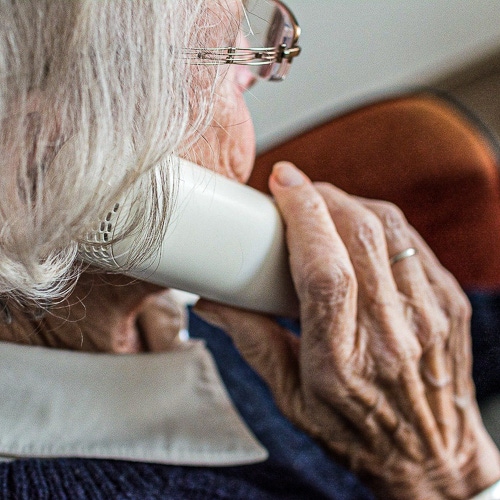Ofcom warns UK operators to stop threatening vulnerable customers
The UK's communications regulator is pushing operators to improve support for at-risk consumers and victims of crime during the coronavirus pandemic.

UK communications regulator Ofcom has told phone, broadband and pay-TV operators they must stop threatening to disconnect vulnerable customers who are struggling to pay bills during the coronavirus pandemic.
The guidance covers not only the elderly and people with mental or physical health problems but also those in debt, the bereaved, victims of crime and those suffering from other emotional problems.
At-risk consumers should be treated fairly, stressed the regulator, and given the right support according to Ofcom's best practice industry guidance.
The organization also highlighted cases where victims of rape and other crimes were forced to continue to pay bills long after their mobile devices had been handed over to police.
Pay it forward
Where people are struggling to pay bills, the regulator has told providers it expects them to "prevent customers from being disconnected wherever possible, allowing the customer time to get help and support without the threat of enforcement."
This could take the form of payment holidays, deferrals, or a freeze on future fees and charges.
Flexible payment plans and advice on tariffs should be offered, as well as referrals to debt counseling services.
Calling and leaving a message isn't good enough either, with stipulations that a "range of communications channels" must be used.
Figure 1:  Not waving: Ofcom research found customers with mental health issues experience poor service most often from mobile operators. (Source: Josh Kahen on Unsplash)
Not waving: Ofcom research found customers with mental health issues experience poor service most often from mobile operators. (Source: Josh Kahen on Unsplash)
"Disabled people face hundreds of pounds of extra costs every month, and this often comes from everyday things like bills," said James Taylor, executive director of strategy, impact and social change at disability equality charity Scope.
"Customers' needs and situations can change over time, so it's essential that service providers recognize and respond to this."
Peter Tutton, head of policy, research and public affairs at the StepChange debt charity agreed.
"Communications services are vital tools of modern life, without which many vulnerable people would simply be unable to access other support services," he said.
"Maintaining access on an affordable basis can play a crucial part in helping people get back on their feet financially in a wider sense."
Emotional intelligence
The regulator is also pushing operators to stop making people pay for services they can't use because their phone has been taken away by the police as evidence.
Worryingly, Ofcom felt it had to spell out how customer service teams should be dealing with consumers who may be extremely fragile emotionally.
This includes not pressuring victims to relive traumatic experiences by forcing them to give more information than is strictly necessary – and to "listen carefully with empathy and compassion, taking time to ensure the customer has the right information, which might include a crime reference number."
Practical help includes the offer of new numbers, temporary SIMs or handsets where appropriate.
Want to know more about 5G? Check out our dedicated 5G content channel here on Light Reading.
"We have heard from many survivors of sexual violence who've experienced uncompassionate and unhelpful responses from mobile providers when their phones have been seized for investigation," said Sandie Barton, director of operations at Rape Crisis Scotland.
"Mobile providers could prevent the financial burden and bureaucratic inconvenience that too many survivors face and make a real difference."
The advice is timely. The regulator says COVID-19 "has increased the potential for customers' circumstances to change suddenly."
Citizens Advice has broadly welcomed the guidance – while rightly pointing out that this is guidance only.
Firms can choose not to act on it or make only superficial changes.
Recent research by the consumer watchdog found that among those with mental health problems, telecoms was highlighted as "the sector where research participants had the most problematic relationship with their provider."
When it comes to the mobile market, they said, 11% of people have disclosed mental health issues to their provider – but only 1% have received support.
Ofcom said it will continue to monitor behavior, including checking companies' actions against the organization's Fairness for Customers Commitments.
Related posts:
— Fiona Graham, editorial director, Light Reading
Read more about:
EuropeAbout the Author(s)
You May Also Like











